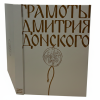The extension of the requirement for the sale of foreign currency earnings by large exporters for a year — until April 30, 2025 — is, as expected, accompanied by a relaxation of this regulation: at the end of last week, the government approved amendments to the resolution describing the work of the government control commission for foreign investment. Now it will be able to issue permission to exporters not to sell foreign currency earnings received under a foreign trade contract if payment for more than half of such a contract is made in rubles. Exporters will be able to submit claims for individual contracts and transactions, as well as for the total amount of claims (in which case the amount of all contracts is taken into account). Rubles, however, still need to be credited to accounts in authorized Russian banks.
Tatyana Edovina
< /p>
Tatiana Edovina
Now, let us remind you, 43 groups of exporters are required to credit 80% of foreign currency earnings to accounts in the Russian Federation, and sell 90% of the credited amount. In the previous version of the resolution, the only exception was the right not to sell foreign currency earnings in the amount necessary to satisfy requirements in foreign currency. But when the mandatory sale requirement was extended at the end of April, the terms for returning currency were increased (from 90 to 120 days from the date of transfer of goods to non-residents; funds still need to be credited within two months).
Businesses asked to soften the requirements back in February — then the RSPP sent a letter to First Deputy Prime Minister Andrei Belousov (“Kommersant” wrote about this on February 26). It noted that exporters are not satisfied with both the need, when receiving export proceeds in rubles, to buy foreign currency abroad for return to the Russian Federation (this complicates calculations), and the lack of a regulatory framework for “exceptions” from the decree by decision of the legal commission for monitoring the implementation of foreign investments.
The head of the Central Bank, Elvira Nabiullina, before announcing the decision to extend the mandatory sale of proceeds, also said that the regulator expects to reduce the stringency of the requirements as “there is an understanding that market factors are at work” . In February, according to the regulator, the 29 largest exporters sold 82% of revenue (data for March and April will be published later). At the same time, in March, the share of ruble payments for exports increased to 43.9%, for imports — to 40.8%. The share of currencies of “unfriendly” countries is decreasing in both calculations — this is a reflection of the reorientation of trade towards China and the increasing risks of secondary sanctions (the share of the yuan on the exchange market in April was the maximum — 53.4%, on the over-the-counter market — 37.9 %). As compliance difficulties persist in foreign banks, we should expect an increase in turnover in rubles and yuan, but the balance of foreign trade settlements in them will become more significant.























































Свежие комментарии